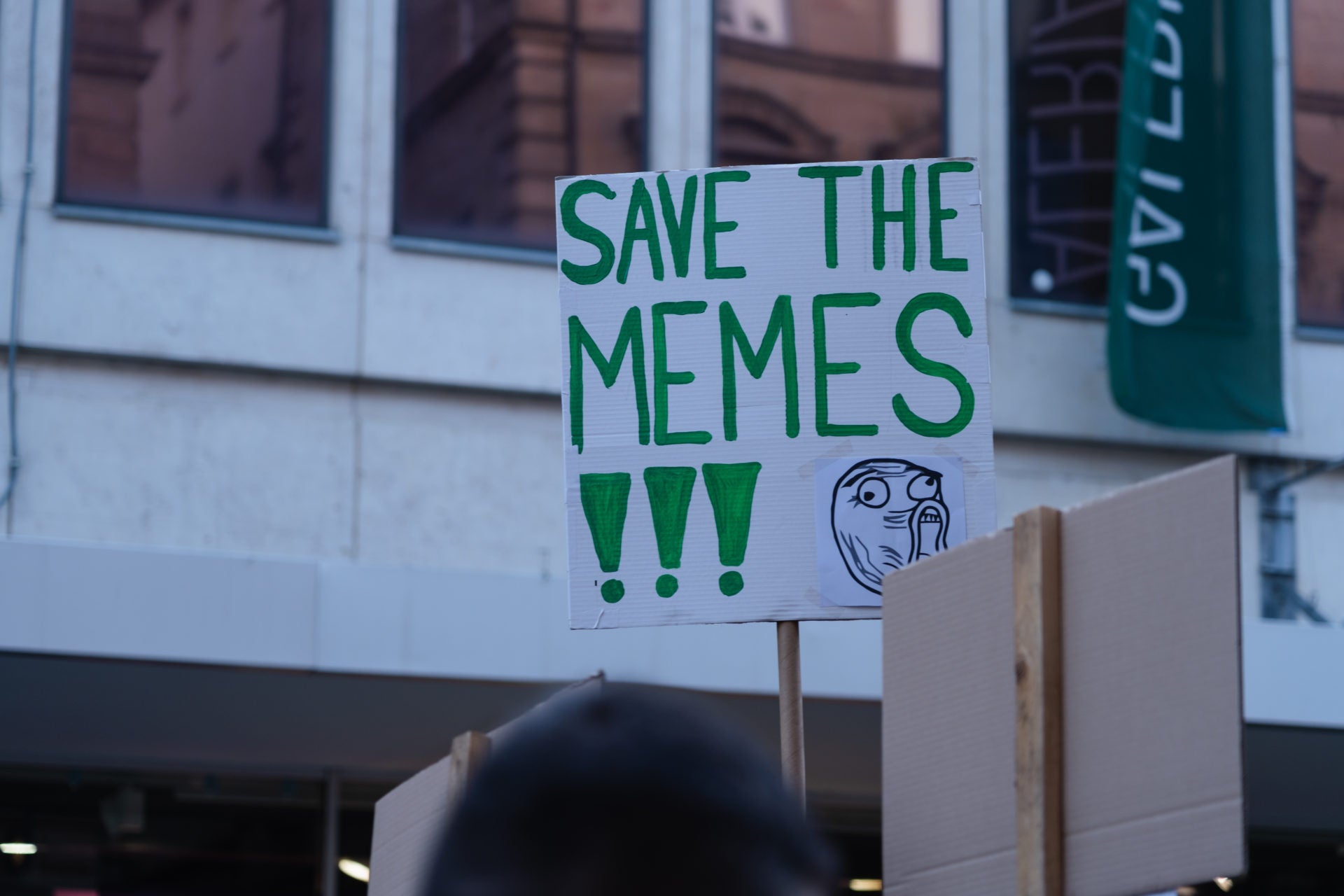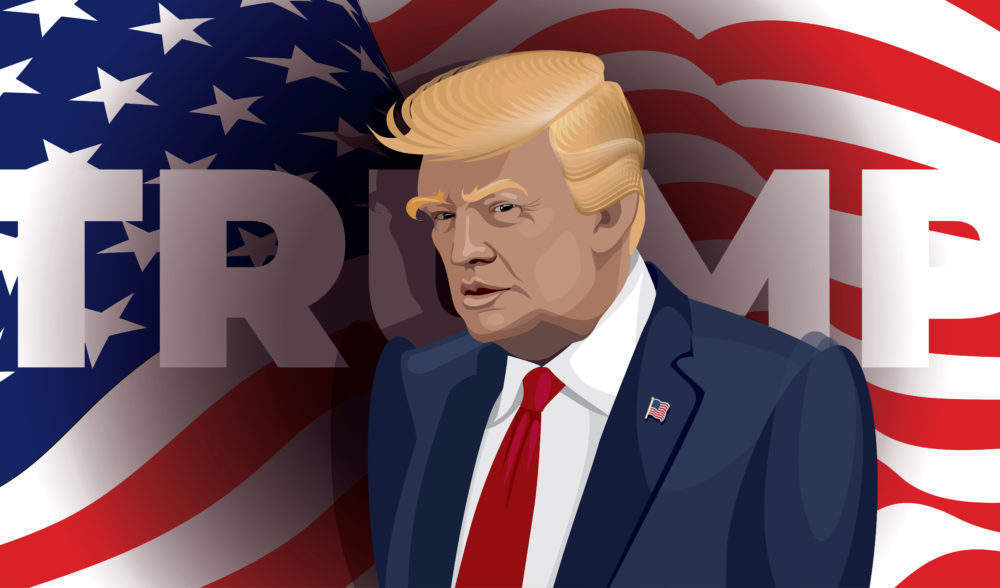
The European Parliament has passed Article 13 and Article 11, the controversial update to Europe’s copyright law, drawing widespread condemnation from technology experts and internet users.
Article 13 shifts the onus onto platforms to remove infringements on copyright, which is currently the responsibility of the individual.
This would have to be done by automatic filtering technology, which critics argue will be unaffordable for smaller platforms.
While the European Parliament said that parodies of content, such as memes, are not the target of Article 13, many are sceptical how these filters will be able to make the distinction.
Proponents say it will help compensate creatives for their work, such as musicians and photographers.
Article 11, known as the ‘link tax’, makes search engines and news aggregate platforms pay to use links from news websites.
How well do you really know your competitors?
Access the most comprehensive Company Profiles on the market, powered by GlobalData. Save hours of research. Gain competitive edge.

Thank you!
Your download email will arrive shortly
Not ready to buy yet? Download a free sample
We are confident about the unique quality of our Company Profiles. However, we want you to make the most beneficial decision for your business, so we offer a free sample that you can download by submitting the below form
By GlobalDataThe Copyright Directive was backed by 348 MEPs, with 278 voting against. Article 13 will be fully implemented in 2021, if member states approve it.
Read more: What is the EU Article 13? Is it really going to ‘ruin the internet’?
Article 13 passed: Industry and expert reaction
Founder of Wikipedia Jimmy Wales said on Twitter that internet users “lost a huge battle today in Internet parliament”, adding that the Copyright Directive is “about empowering monopolistic practices”. Wales was one of the many signatories of an open letter to the President of the European Union warning about the potential impact of Article 13.
You, the Internet user, have lost a huge battle today in Internet parliament. The free and open internet is being quickly handed over to corporate giants at the expense of ordinary people. This is not about helping artists, it is about empowering monopolistic practices.
— Jimmy Wales (@jimmy_wales) March 26, 2019
Tom Warren, senior editor at The Verge, tweeted that while “these laws have good intentions” they “will have grave consequences for the internet”.
European politicians have passed Article 11 and Article 13. These laws have good intentions, but they will have grave consequences for the internet. Article 13 means sites will have to scan all user uploaded content for copyright material and remove it https://t.co/B1ZTUdkW7j pic.twitter.com/S3bhH4JEMU
— Tom Warren (@tomwarren) March 26, 2019
In a statement, YouTube said that the “final version of the EU Directive is an improvement, but we remain concerned. Article 13 could still have unintended consequences that may harm Europe’s creative and digital economy.”
Update: The European Parliament has now voted on the EU Copyright Directive. Thanks to all the creators who spoke up about how #Article13 will impact them and their communities. Here's our statement on today's vote ⬇️ pic.twitter.com/ETHEOYwr7w
— YouTube Creators (@YTCreators) March 26, 2019
Meanwhile, Raffaella De Santis, associate at law firm Harbottle & Lewis, said:
“Artists and creators will hail the passing of the directive as a real victory for their right to be fairly paid for their creations. However, the effect of the text of the directive as passed could at the same time have very concerning and unintended consequences for vast swathes of online services, not simply those operating in music or news.
“This outcome is unpopular with digital services and importantly, many European voters. The key focus now will be on how the directive is implemented across the EU over the next two years, and care will need to be taken to ensure that smaller services are not disproportionately disadvantaged by measures which are in reality designed to curtail the formerly unchecked power of the tech giants.”
Simon Migliano, head of research at Top10VPN.com, warned that Article 13’s “well-intended” laws could see the online creation community “severely stifled”.
“The reality is that a generation that has been brought up on memes and video platforms like YouTube is hardly likely to take this unprecedentedly far-reaching legislation lying down. It will not come as a surprise to see millions of European web users turning to anti-censorship tools like VPNs (Virtual Private Networks) in a bid to retain their internet freedoms,” he said.
However, Frances Moore, CEO of The International Federation of the Phonographic Industry – which represents the interests of the recording industry worldwide – welcomed the passing of the Copyright Directive.
“We thank lawmakers for their efforts in navigating a complex environment to pass a Directive with noteworthy implications for the content community. This world-first legislation confirms that User-Upload Content platforms perform an act of communication to the public and must either seek authorisation from rightsholders or ensure no unauthorised content is available on their platforms.
“The Directive also includes a ‘stay down’ provision requiring platforms to keep unlicensed content down – another global first.”
Article 13 passed: The response on Twitter
Twitter users reacted with a mixture of anger and humour. Unsurprisingly, many of the responses to the ‘meme ban’ were… memes.
Article 13: gets passed
The UK: pic.twitter.com/VopNPesDqo
— KoofBoi // Commissions Open (@Keefyboi) March 26, 2019
brexit, now that article 13 has passed pic.twitter.com/wfLmkEto7h
— rat boy (@NatrixMatrix) March 26, 2019
And Article 13 is passed… pic.twitter.com/qeGuFevFV8
— Kyubey's Stand (@kyubeystand) March 26, 2019
Some described it as the ‘death of the internet’:
Article 13, the death of the internet
— Harry C (@HazSpur92) March 26, 2019
Happy birthday to @auxiliaryhecker and also the death of the internet because Article 13 passed today.
— Kali Karu & Family ⦕xn--8diaaaa⦖ (@FurKaruFam) March 26, 2019
Others urged caution:
Maybe we should wait until memes start getting banned before the histrionics. This seems like a Net Neutrality all over again and I don’t hear much about that anymore despite the imminent death of the internet we were all warned of.
— Nick Hawkesford (@NickHawkesford) March 26, 2019
I see the usual suspects are now declaring the death of the internet thanks to #Article13, however the new regulations don't actually force companies to introduce filters or ban people from uploading memes. Looks like the latest storm in teacup to me ☕️
— Kris Griffiths (@KrisGriffiths) March 26, 2019
Many also voiced their frustration that the law had been passed by an older generation, with long-term consequences for younger people.
So, now some 60 year olds will decide what should be on internet, and what shouldn't be. You guys spend your whole day reading newspaper and drinking tea. You guys don't even use internet, you freaks. You don't even know how it works. F*cking assh*les, y'all.#Article13
— Tapan (@_RMTAP) March 26, 2019
When will old people, who have no idea what's going on on the internet leave politics and let us young people rule the world? We know what's good for US and YOUNG PEOPLE.#Article13
— ?????ᴸᴼᵛᴱˢ ˢᴷᶻ (@twicehyyh) March 26, 2019
Read more: European Parliament approves Copyright Directive meme law, so when does Article 13 start?







